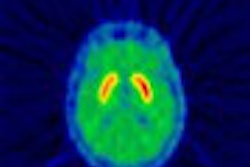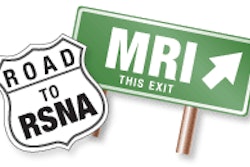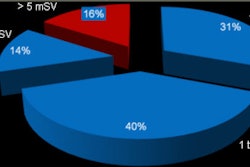Researchers at University Hospitals Case Medical Center's Neurological Institute are having early success using functional MRI (fMRI) to evaluate the brain activity of patients with dystonia, a disorder characterized by a progressive loss of motor control.
Dr. Benjamin Walter, medical director of the university's Deep Brain Stimulation Program, and colleagues are exploring how brain activity in patients with dystonia differs from that of normal subjects. The researchers also want to determine how deep brain stimulation may lessen involuntary spasms caused by the condition.
In the initial stage of the research, fMRI is being used to observe brain activity in healthy subjects and in patients with dystonia who have not received deep brain stimulation implants.
Using a small device that vibrates over a wrist tendon, the researchers create the false perception that the subject's wrist is flexing. They then examine the results of MRI scans taken during the stimulation.
In normal patients, the researchers have observed brain activity in the motor cortex and the motor portion of the basal ganglia and the posterior striatum. Among dystonic patients, they are hoping to determine where signals become abnormal, whether there are different anatomical structures involved, and where best to place the deep brain stimulation wire for more beneficial treatment.
The next stage of the research will include fMRI of patients who have received deep brain stimulation treatment.



.fFmgij6Hin.png?auto=compress%2Cformat&fit=crop&h=100&q=70&w=100)




.fFmgij6Hin.png?auto=compress%2Cformat&fit=crop&h=167&q=70&w=250)











